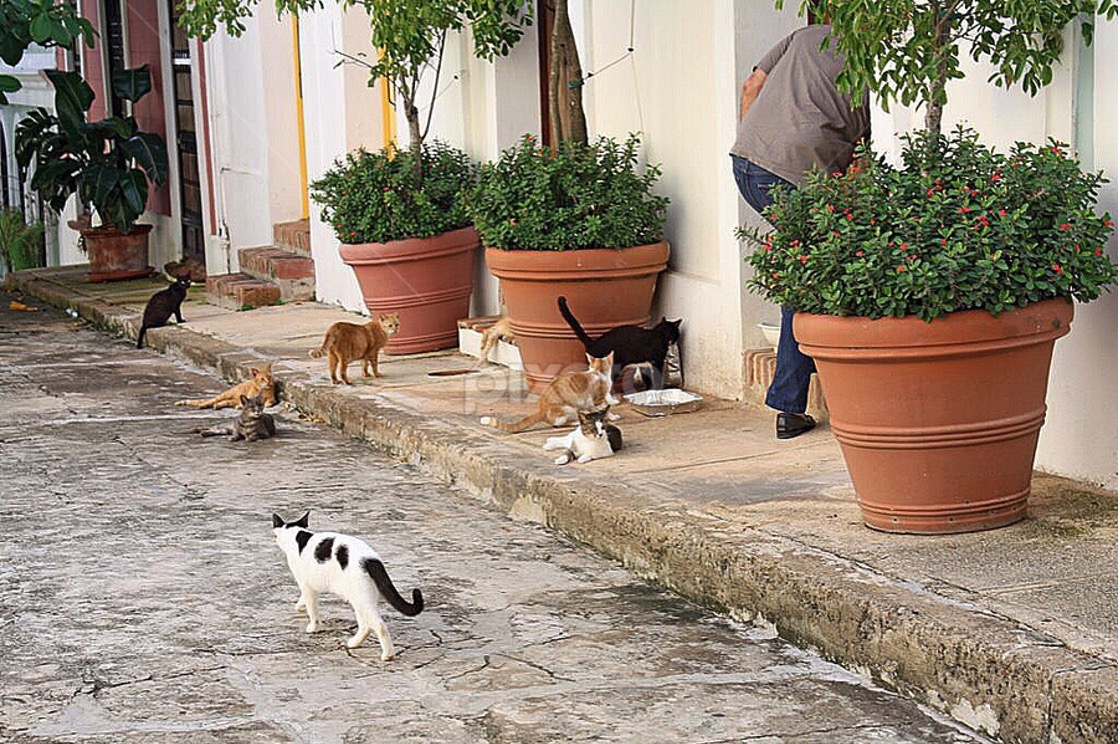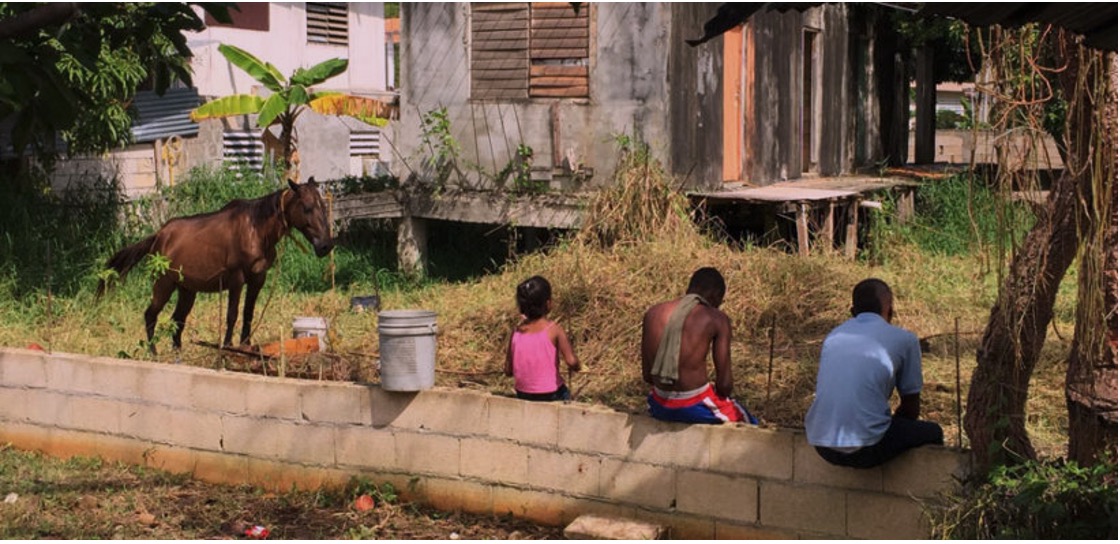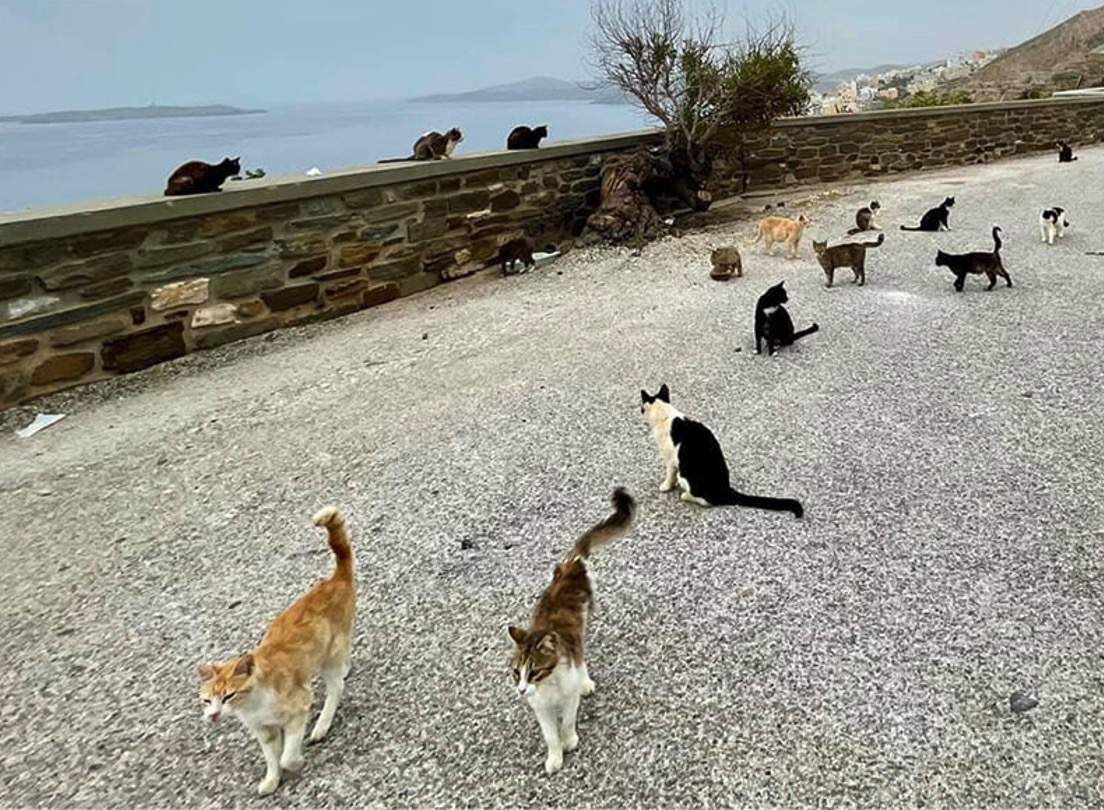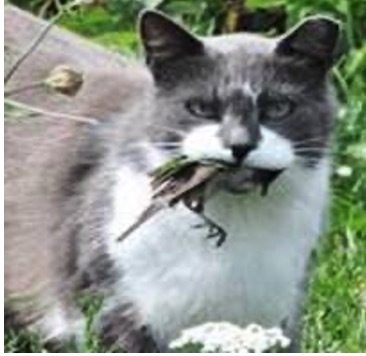Comments
ANIMAL WATCH - A non-profit group, Alley Cat Allies, filed a lawsuit against the United States National Park Service (NPS) on March 27, 2024, to stop the removal of approximately 200 feral cats from the historic Paseo Recreational Trail area [Del Morro National Recreational Trail]” in Puerto Rico, claiming the agency “violated federal environmental laws when it approved the plan last year.”
The Maryland-based activist group is claiming the federal agency wrongfully ended a humane “Trap-Neuter-Return” program, despite the cats posing no harm and their revered status in the community, according to Courthouse Records. Com.
The suit alleges, “Now they face a deadly threat from the NPS, which is determined to remove the cats from their natural outdoor homes and their community, including by lethal means.”
The group also contends “…government officials decided too quickly to implement the plan to remove the cats and failed to comply with the National Environmental Protection Act, which requires a careful evaluation of all environmental impacts of this action.”
The NPS responded that removing the feral cats is a necessary action “to protect visitors and natural wildlife,” but Alley Cat Allies contends the agency didn’t provide sufficient evidence to show the cats pose a threat.
The cats are currently cared for by volunteers from a local group which feeds and spays or neuters cats in the area.
The National Park Services states that in 2022 they began receiving complaints that, “the population had grown too much, and it noted the smell of urine and feces in the area.” They also have concerns about disease control, according to the NPS report.
It is estimated that the approximately 200 stray cats live on the 75 acres surrounding a 16th-century fortress known as “El Morro” at the San Juan National Historic Site the feds operate.
“Despite these facts, the NPS has arbitrarily decided to pursue an unattainable, unnecessary and inhumane goal: the complete eradication of cats within the Paseo [Del Morro National Recreational Trail],” Alley Cat Allies says in the complaint.
The activists contend that “the park service arbitrarily ended the program and has instead shifted to a phased approach that will include trapping and removal efforts by an animal welfare organization (or, if necessary, a removal agency), removal of all feeding stations, and euthanizing any removed cats deemed unsuitable for adoption and cannot fit in shelters with limited space.”
PARK SERVICES’ PLAN
The National Park Service first announced its plan this past November, stating its intention to remove approximately 200 stray cats living on 75 acres surrounding a popular 16th-century fortress known as “El Morro” at the San Juan National Historic Site, which is operated by the federal government.
At that time they also advised that “an (unnamed) animal welfare organization would be given the opportunity to carry out the plan, but if it fails to accomplish this within six months, the Park Service will hire a removal agency.”
Activists are accusing Park Services of “violating the National Environmental Protection Act by failing to properly consider alternative methods, and “Instead, they arrived at a ‘solution’ that will result in the needless killing of potentially hundreds of healthy cats,” the group states in its complaint.
The activists warn that even if the 200 resident cats are removed, it is likely they will be replaced by other feral or stray cats, which will migrate from surrounding areas.
Some residents contend the cats draw tourists to the colonial district; however, the prevailing opinion, including the Puerto Rican government, claims that the cats “have become an unsightly nuisance, a health hazard and a blemish on the area’s charm,” Today.com reports.
VETERINARY CONCERNS INCLUDE TNR PROGRAM

Among the outspoken critics is the Puerto Rican Health Department’s chief veterinarian, Carlos Carazo Gilot, who described the situation as, “Trash cans turned over, cat smells all over the city, cats with skin problems and lameness wandering in and out of vacated old buildings—In my book, leaving cats to wander in the streets of San Juan is in itself cruelty to animals.”
A group of community cat caregivers called, “Save-a-Gato” believes its program of trapping, neutering and releasing the felines “has cut the population by more than half in the last three years.” It also reminded authorities that past efforts to remove the cats have resulted in thousands signing petitions in opposition.
Save a Gato president Sylvine Sherwood, stated. “We have a deep respect for life.”
But the U.S. island's government disputes Save a Gato’s numbers that indicate a reduction in stray/feral cats. Dr. Carazo says the TNR (trap, neuter, return) program is not working “because irresponsible pet owners keep dumping more animals, and sterilized cats still carry diseases,” Today.com reports.
He names identified health hazards as including toxoplasmosis, which can also cause serious complications for pregnant women and people with weak immune systems.
He proposes meeting with the San Juan municipal government about a plan to move the wild cat colonies into abandoned buildings, and allow Save a Gato volunteers could run a shelter to place adoptable stray cats in homes.
Currently Puerto Rico does not have a licensing program or registration laws and spay/neuter is not readily available. Dr. Carazo states that there must be “learning about proper animal control and protection concepts. He vows to keep working to solve this problem, hopefully without euthanizing any cats.”
POVERTY IN PUERTO RICO


Puerto Rico is an unincorporated territory of the United States, classified as a commonwealth. It is 110.6 miles in length and the largest in a chain of islands, located between the North Atlantic Ocean and the Caribbean Sea. It is larger than the state of Rhode Island but smaller than Connecticut.
The population of Puerto Rico was 3.222 million with 43% living below the poverty line, according to a 2023 comparative study by the Weekly Journal, with the median household income at $22,410, whereas, the U.S. average is around $65,000, or 180.9% higher. The labor force (those able to work) is only 45.1%, which means 55% of the population lives on federal funds, the “informal economy,” or some form of disability.
NON-PROFIT GROUPS SHOULD BE PART OF THE SOLUTION

In any discussion of Trap-Neuter-Release (TNR), Best Friends Animal Society is the recognized leader of this effort and, one would hope, willing to be part of this desperate situation.
Following are official reports on the revenue and assets of Best Friends and Alley Cat Allies, which brought the current lawsuit:
PROPUBLICA REPORTS – 2022
Best Friends Animal Society – 2022
Known as the foremost promoter of “No Kill” and TNR programs.
Total Revenue: $141,488,178
Net Assets: $122,477,549
Alley Cat Allies – 2022
Brought lawsuit in Puerto Rico Regarding Feral Cats
Total Revenue: $13.9M
Net Assets: $14.7M
Puerto Rico also has a serious feral cat problem, which U.S. Parks government agency is acting to control by placement and, if necessary, euthanasia of any animals which are determined to be a public health or safety threat.
And, a U.S. animal-activist group is rushing to bring a lawsuit on behalf of the cats.
Best Friends Animal Society is known as the leader in protecting feral cats but in this poverty-stricken U.S. territory, where many animals are ill and desperate, here is the final part of CEO Julie Castle’s statement:
“Best Friends is eager to sit down with all stakeholders if killing is off the table. We can save cats and protect wildlife. Sylvester and Tweety Bird can live happily ever after. Together we can save them all.”
CATS ARE AN INVASIVE SPECIES

Although it is believed the cats, which are a non-indigenous species, were first imported from Spain while Puerto Rico was a colony, the explosion of feral cats began in the mid-1900’s when they were brought to the capital by Mayor Felisa Rincon de Gautier, the first female mayor elected in the Americas.
The National Bird Conversancy reported in December 2023 that the number of domestic cats has tripled in the U.S. in the past 40 years, with “more than 100 million feral and outdoor cats functioning as an invasive species with enormous impacts.” The organization estimates that “Every year in the United States, cats kill well over 1 billion birds.”
Just as in Los Angeles and other cities worldwide, the feral cat population in Puerto Rico has exploded and is impacting bird and small mammal populations, which are each a vital part of our world environment.
Our leading non-profit animal-welfare organizations are generously rewarded and should join in an effort to protect birds and wildlife from known instinctive domestic predators, by emphasizing programs to keep cats inside and safe, as well as alive.
That will help save them all!
(Phyllis M. Daugherty is a former Los Angeles City employee, an animal activist and a contributor to CityWatch.)






